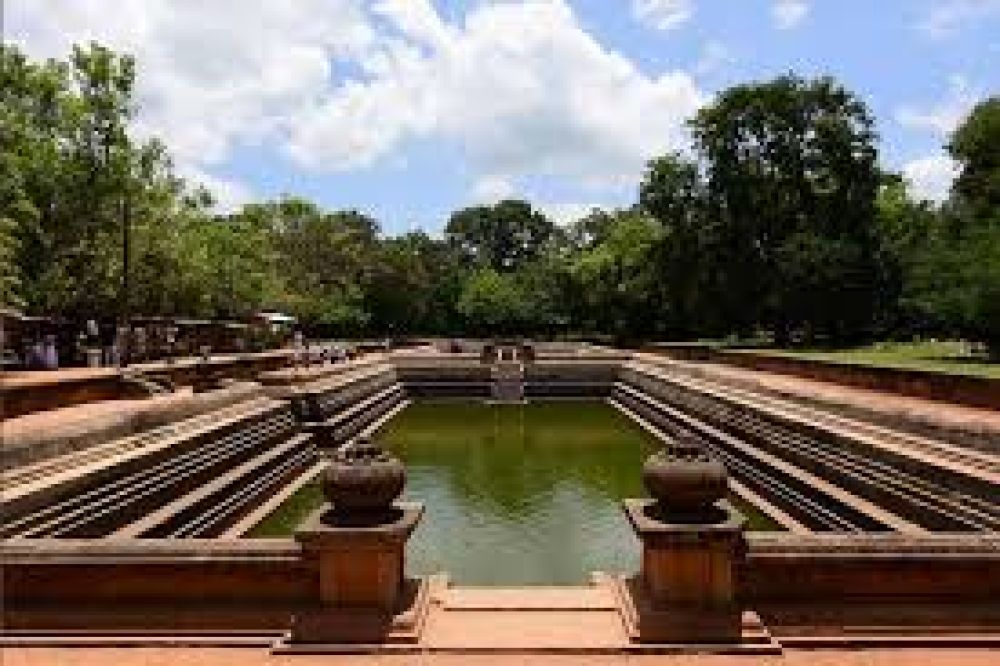

The ancient city of Anuradhapura, situated in the North Central Province of Sri Lanka, is a treasure trove of archaeological wonders and has been a focal point for tourism due to its historical significance and well-preserved remnants of ancient civilization. Among its numerous attractions is the Kuttam Pokuna or the Twin Ponds, which stands as a hallmark of the advanced hydrological engineering and exquisite craftsmanship of the Sinhalese people during the Anuradhapura period.
Kuttam Pokuna is believed to have been constructed during the reign of King Aggabodhi I (575-608 AD) and is renowned for its sophisticated design and elaborate decorations. As part of the ancient capital of Sri Lanka, Kuttam Pokuna and the city of Anuradhapura have been designated as a UNESCO World Heritage Site, attracting history enthusiasts, archaeologists, and tourists alike.
Tourism in Anuradhapura, including Kuttam Pokuna, began in earnest with the archaeological discoveries and restorations carried out during the British colonial period. With the establishment of the Archaeological Department of Sri Lanka in 1890, more systematic preservation and presentation of these ancient sites were initiated, which in turn drew the curiosity of tourists.
The aesthetic beauty and tranquility of Kuttam Pokuna make it a mesmerizing site for visitors. Its features include two identical symmetrical pools, intricate carvings, and balustrades which showcase the greatness of early Sri Lankan architecture. The engineering techniques used allowed for water to be filtered before entering the ponds, reflecting a high level of technical proficiency in construction and water management.
Visitors to Kuttam Pokuna can marvel at how the pools have stood the test of time. They are also exposed to a large collection of other ruins in Anuradhapura, such as large stupas, ancient palaces, and other pokunas (ponds).
Over the years, tourism trends in places like Kuttam Pokuna have been evolving. Focus has shifted towards a sustainable and responsible travel approach. There is increased emphasis on eco-tourism and cultural preservation to ensure that the heritage sites remain intact for future generations. Technologies like virtual reality are at times employed to enhance the visitor experience without disturbing the ancient structure.
Kuttam Pokuna continues to be one of the spectacular testimonies of Sri Lanka's historic civilization. Its role in the tourism industry of the country is significant, as it provides an insightful reflection of the rich cultural and architectural heritage of ancient Sri Lanka.